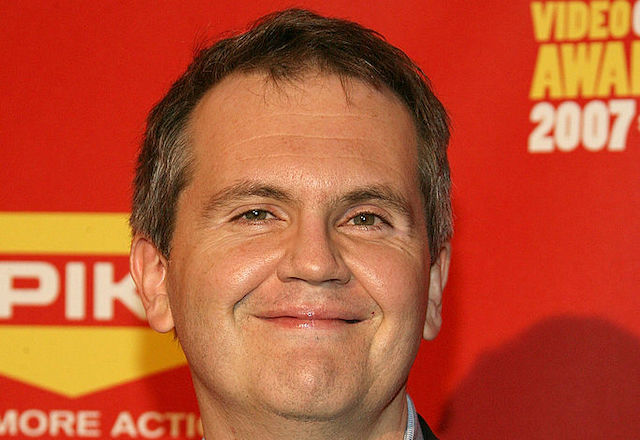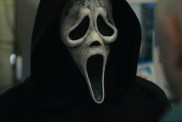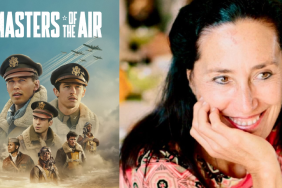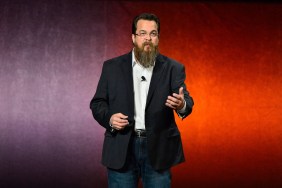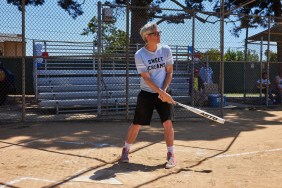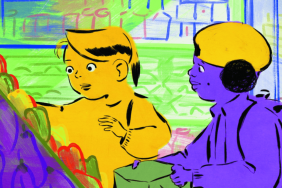The Exchange is out now via on demand and digital. The comedy is written by The Simpsons writer Tim Long and stars Ed Oxenbould, Avan Jogia, and Justin Hartley in the main roles. The foreign exchange student story is directed by frequent Sacha Baron Cohen collaborator and Borat writer Dan Mazer.
RELATED: Tim Long Recalls Writing The Goonies Musical With Richard Donner
“A socially awkward but highly enterprising teenager decides to acquire a ‘mail order best friend’ a sophisticated exchange student from France,” reads the official The Exchange synopsis. “Instead, he ends up importing his personal nightmare, a cologne-soaked, chain-smoking, sex-obsessed youth who quickly becomes the hero of his new community.”
ComingSoon Editor-in-Chief Tyler Treese spoke with writer Tim Long about writing a movie, his late-night talk show past, and how he felt about pissing off Morrissey.
Tyler Treese: What made you really want to write a film centered around an exchange student? Was this a personal thing? Did you ever have an experience growing up where you brought an exchange student to your home?
Tim Long: I absolutely did. I had an exchange student that came home and it was very different. He was a very different kind of guy. A lot of the basic experiences, sort of my extreme surprise of who the guy turned out to be, and some of the experiences that are recounted in the movie. They were definitely true things that happened to me. They say write what you know, so I wrote what I knew and here we are.
What I like about the story is it’s about culture shock, but it’s kind of a twist on it where the domestic student is experiencing the shock rather than the foreign student. How fun was it to sort of turn that trope on its head from expectations going in?
It was unbelievably fun. I felt like, obviously, there are issues that don’t go away about a clash of cultures, the way people can misunderstand each other, and the way these misunderstandings can lead to pretty serious consequences. Like you said, it was really nice to do it in a different way that was hopefully funny for people and not so straightforward.
The film is set in a small town in Canada. So often I see films centered around big cities like New York or LA. This still managed to deal with, uh, you know, some important social issues and xenophobia, but we get it through the small town lens, which I thought was really refreshing to see. Can you discuss the setting and the role that it plays in the story?
Again, that’s something that was true to life. I grew up in a very small town in Canada called Exeter that in many ways is different from the town in the movie, but in many ways is the same. I love small-town stories because they reflect the way life was for me when I was growing up. At the same time, I feel like they sort of portray people universally as yokels and the situation is much more complex. There’s a much wider range of people and attitudes in a small town. That was, again, something that I knew well, and I also knew that feeling of being a small-town kid that thought he was so much smarter than everyone else that wound up not being all that smart at all.
From a writer’s viewpoint, does your approach change from writing for a live-action script rather than animation? Obviously, you know, like budget becomes more of a concern and it has to be a bit more grounded, but is that a dynamic shift in how you approach stories, or does it stay the same?
Not to be a weasel about it, but I think it does and it doesn’t. Obviously, presenting things in the live-action situation, it’s a different kettle of fish in terms of what you put on the screen. On The Simpsons, if we really need to, we can have Homer’s head explode at the end of a scene. Not so easy to do in a live-action context. At the same time, I like to believe that writing is writing. Even with The Simpsons, I’ve been lucky enough to work on the show for 20 years, it was always been on genuine emotional experience even if the comedy is a little heightened. So I was able to bring that to The Exchange.
Did you get to visit the set while it was filming? I’m just curious because you don’t get to see the animation really done in real-time, but did you get to see the film and your story kind of come to life?
A hundred percent. It was actually filmed in a small town in Ottawa and in a few areas around the Ottawa area. I just thought, well, this is my first feature and it is at least partially based on my life, so I’m not going to miss this. So I was there pretty much every single day.
With The Simpsons, you’re so used to writing these stories that fit into 22-minute episodes and nicely for TV. Writing a feature-length film, you can let the story beats kind of breathe and you don’t have to resolve the plot at a quick pace. Just from a writer standpoint, did you have to adjust a little bit to that extra length?
A hundred percent. That’s exactly what I loved about it was that yeah, you have these moments where the story can breathe, and then you just sort of let scenes play out. See a little bit of the dynamic of the family, the dynamic of the parents. It was just so exciting to create a whole new world. I play in the sandbox on The Simpsons on a daily basis, and that’s great, but it is something that someone else created. What was great about this was that it was a world that I created, all these characters were mine. Again, like you said, it gave us room not just to get laughs, but also to let it breathe a bit and give it a little bit of emotional depth.
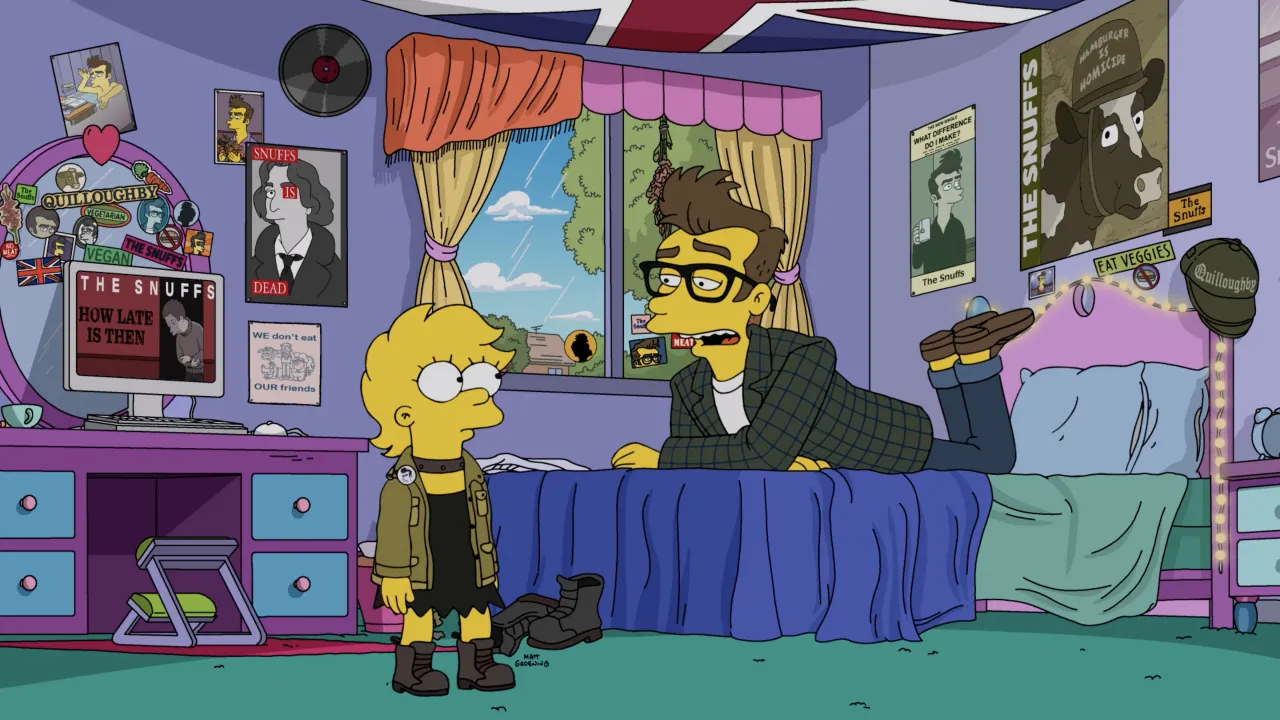
You wrote The Simpsons episode Panic on the Streets of Springfield, and I thought it was so great. I’m a big fan of The Smiths. So it was real fun to see those scenes, but Morrissey did not. He said “in a world obsessed with hate laws, there are none that protect me. Free speech no longer exists.” I just wanted to get your reaction to that.
I was a huge fan. He was a real hero of mine growing up. So I didn’t set out to make him upset. I set out to talk about my own, let’s say, ambivilent feelings about him and a lot of rock stars I grew up with. You always feel like any form of attention is a form of flattery. So I consider myself extremely flattered.
I saw that Bret McKenzie did the music. How cool was it to collaborate with him? I’m such a huge fan of Flight of the Conchords.
Oh my God. It was fantastic. I wrote the lyrics and then he wrote all the music and it was so much fun. I would tell him, I want the song to sound a little bit like this and a little bit like that. Literally in 24 hours, he would send me a demo that completely nailed it. I’ve known Bret for a long time as a friend and it was such a thrill to work with him in that way. There was one moment, last September when we were recording, Benedict Cumberbatch had played the character [Quilloughby]. It was me, Bret, and Benedict all on Zoom in different cities and I just thought, “Oh my God, I love my life. This is great.”
That’s so awesome. In the past, I know you worked on some late-night talk shows, Late Show with David Letterman and Politically Incorrect. That’s obviously very much about joke writing. How has that helped your creative writing as well?
It has certainly made me somebody who’s not afraid to write hard jokes. Just the very fact that those shows happen every night in the case of the Letterman show, it gives you a discipline. There’s not an option when you’re writing for Letterman or a show like that where you can go, “I’m not feeling it today.” You’ve got to produce material and you need to produce it fast. So that was really, really helpful. And of course, being around Bill Maher and David Letterman, they’re two of the funniest people in the world so you can’t help but learn a little bit by osmosis. I would say it wasn’t until that I got to The Simpsons and worked on some other things, that I started to get more obsessed with character arcs and narrative. I like to think that I’ve progressed every step of the way and certainly those shows are part of it.
The Exchange has such a great cast. I would love to get your thoughts on Ed Oxenbould, Avan Jogia, and Justin Hartley and how they really brought those characters to life. I think they’re each so great.
Oh, they’re so unbelievably great. They had such chemistry, not just onscreen but off-screen. I remember there were a couple of times where we’d break for the weekend and you’d be walking down the street near our hotel in Ottawa and I’d see the two of them walking with a pizza in their hands. They were going back to the hotel and play video games and eat pizza. I was like, well, this is great. These two are really forming a connection and I think that really came through on-screen. Justin was unbelievable. I think people are going to be really surprised with what he does in a more explicitly comedic role. I also got to give a shout-out to Paul Braunstein and Jennifer Irwin, who play the parents, and are so good in their parts.
